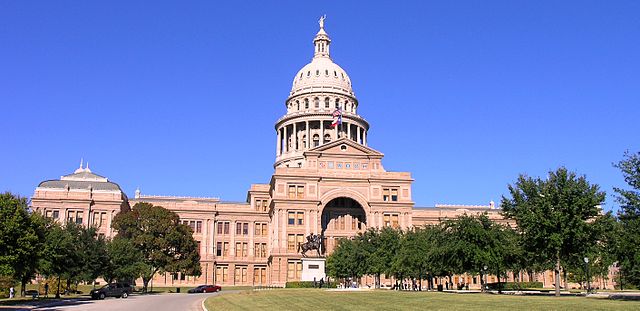
A new poll was conducted this month by the Texas Politics Project at the University of Texas in Austin, revealing Texans’ attitudes on government, institutions, and certain issues. Polls like this aid in presenting the attitudes of Texans and where they stand when it comes to social, legislative, and institutional issues. The polling was conducted in the early part of December and 1,200 Texans were polled.
The poll looked at how Texans regard how well the Texas government takes care of them. 37% say that the Texas government mostly addresses the needs of Texans vs. 46% say that the Texas government mostly ignores the needs of Texans.
31% of Texans polled say that the state is more careful with people’s tax dollars. 48% disagree, saying the state is careless with people’s tax dollars.
46% of polled Texans say they want state and local governments to “offer economic benefits or incentives like reduced property taxes to attract business investments.”
During the election, several Texas leaders were polled with low approval ratings, but both Governor Abbott and Lt. Governor Dan Patrick’s approval rating has risen slightly this month, the poll shows. Abbott has a job approval rating of 49%, his highest this year, and a disapproval rating of 41%. Patrick has a job approval rating of 43% and a disapproval rating of 36%.
The issues questioned were certain controversial topics in the state of Texas that might come up during the legislature. The poll focused on legislative issues that have traditionally been taboo in the state, and the bills that support them may not be upfront coming to this session.
72% of Texas voters are for reducing punishments for small marijuana possessions. 35% say gambling laws should be less strict, 20% said more strict, and the rest said to leave the laws alone. 65% support expanding Medicaid eligibility. While Democrats gave a high majority support for expanding Medicaid (91%), Republicans were split on either supporting it (42%) or opposing it (43%). Governor Abbott has stated that he seeks to lower the punishments for small marijuana possession. State actors like Lt. Governor Dan Patrick are strongly opposed to legalizing gambling in Texas.
The polling also questioned how Texans thought corporations and businesses were responding to social issues. On climate change, 44% of Texans stated corporations and businesses were doing too little, while 29% said they were doing too much. On LGBTQ issues, 36% said they were doing too much, while only 29% said they were doing too little. On racial discrimination, 39% of polled Texans said too little, while 26% said too much. For women’s rights, 40% said that corporations and businesses were doing too little, while 21% said they were doing too much. On abortion access, 39% said that they were doing too little, and only 27% said they were doing too much. On democracy and voting rights, 39% said they were doing too little, while only 20% said they were doing too much.
The poll also focused on how Texans feel about various institutions. This is interesting because it could be predictive of whom Texans trust and what attitudes the state needs to take towards these institutions. 75% of people have a favorable view of local businesses in their area. 50% have a favorable opinion of Churches and faith organizations. Universities and colleges have a 45% favorability. Public schools, major companies in the US, and labor unions were all between 45%–40%. Major companies outside of the United States had a favorability rating of 16%.
There were many issues that came to the forefront of legislators’ minds that this poll did not need to cover such as guns, education, schools, supporting teachers and healthcare workers, etc. Voters really voiced out during this past election.
Furthermore, the attitudes of polled voters showed that 46% believe the state is on the wrong track, and 39% say it is on the right track. These are actually positive numbers from several years ago. 42% say the Texas economy is worse off, and 16% thought it was better off.
Overall, the top three issues Texans still believe are facing the state are inflation, the border, and the economy. This generic polling does give legislatures a glimpse of what Texans are valuing, and what they are wanting to see in the Lone Star State. As the 2023 Texas Legislature convenes in January, polls give them an outlook on where the state stands on certain issues, institutions, and the government itself. When politicians understand the attitudes of voters, then they can navigate the Legislative session.